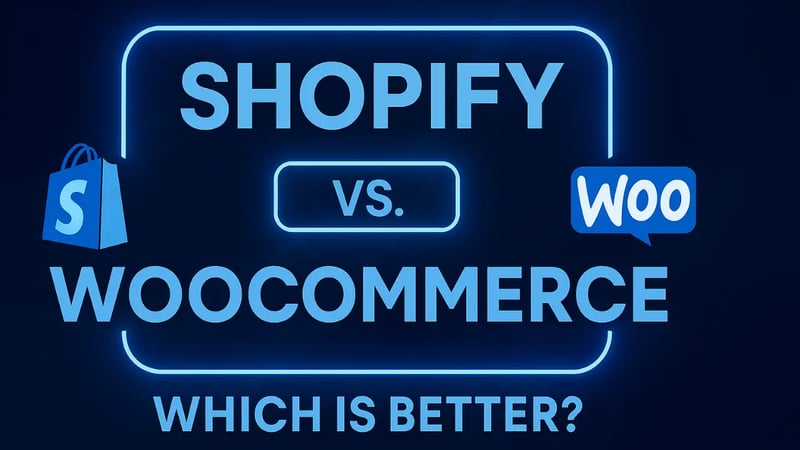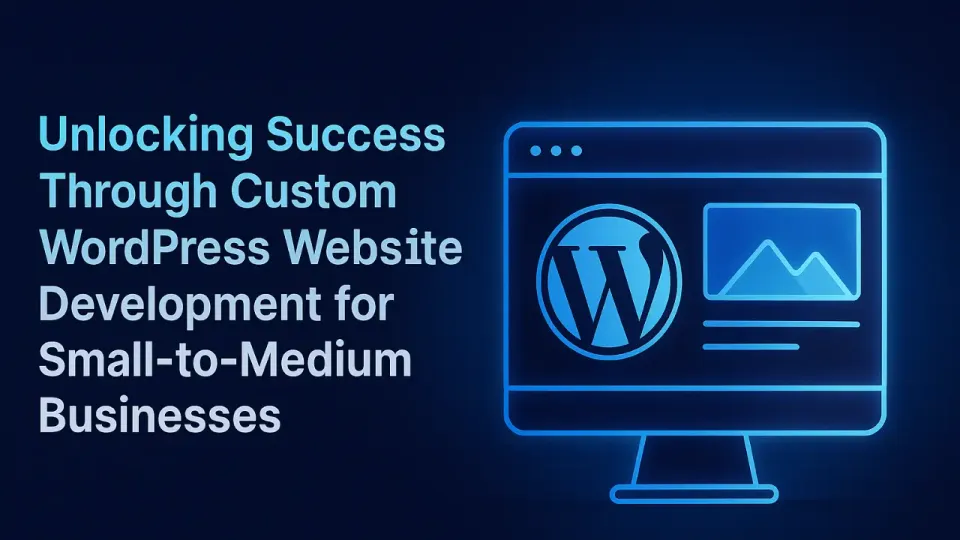Shopify vs. WooCommerce: Which is Better?
Delve into the comparison of Shopify and WooCommerce to determine which platform is the best fit for your online business.

When deciding to set up an online store, business owners often face a challenging choice: Shopify or WooCommerce? These two platforms dominate the e-commerce landscape, each offering unique advantages, allowing entrepreneurs to tailor their online presence. But how do you choose the right platform that aligns with your business goals in Hoover, AL, and beyond?
Understanding Your Business Needs
Before we dive into the details of comparing Shopify vs. WooCommerce, consider your business's specific needs. Are you a local shop owner wishing to expand online? Or perhaps you are an entrepreneur with a digital-first approach? Understanding the nuances of your business will help clarify which platform is the best fit.
Shopify in a Nutshell
Shopify is an all-in-one e-commerce platform that provides everything you need to create, manage, and grow your online store. With its user-friendly interface, it’s a fantastic option for those who may lack technical skills. Some standout features include:
- Ease of Use: Shopify's drag-and-drop interface allows users to design their stores without coding.
- Built-in Payment Processing: The platform integrates various payment gateways, making transactions seamless.
- 24/7 Support: Excellent customer service can alleviate the stress of running an online store.
WooCommerce in a Nutshell
WooCommerce, on the other hand, is a WordPress plugin that enables e-commerce functionality on existing WordPress sites. It can be ideal for those who already have a WordPress site or prefer greater customization control. Key attributes include:
- Flexibility: Custom themes and plugins significantly enhance the store's capabilities.
- Cost-Effective: For those comfortable with WordPress, WooCommerce can often be less expensive in terms of monthly fees.
- Full Control: You have complete ownership of your data and can modify your website as you see fit.
Cost Comparison: Shopify vs. WooCommerce
One critical factor in your decision-making should be your budget. Let’s break down the cost differences:
Shopify Costs
Shopify’s pricing ranges from $39/month for its Basic plan to $399/month for the Advanced plan. Additional transaction fees may apply unless you use Shopify Payments. Often, entrepreneurs find the all-inclusive nature of Shopify worth the investment, as it simplifies the management process.
WooCommerce Costs
WooCommerce itself is free, but you’ll need hosting, domain registration, and the potential costs of plugins and themes. Depending on your choices, initial costs can be controlled, but ongoing expansion may increase these expenses. For example, hosting can cost anywhere from $5 to $80/month depending on the provider.
Customization and Scalability
As businesses grow, they often require more advanced features. Let’s examine each platform's scalability.
Shopify Scalability
Shopify allows users to scale effortlessly. With options to add sales channels via Facebook, Instagram, and even Amazon, it seamlessly integrates multiple sales avenues into one manageable dashboard. Businesses like Gymshark utilized Shopify to surge in sales during COVID, demonstrating its capacity for handling significant traffic.
WooCommerce Scalability
WooCommerce provides limitless customization. With thousands of plugins available, you can tailor your store exactly to your needs. Companies like Blue Star Coffee use WooCommerce to adjust their online presence based on seasonal demand, showcasing its flexibility in strategy modifications.
SEO and Marketing Capabilities
SEO is vital for attracting organic traffic. Let’s evaluate each platform's capabilities:
Shopify SEO Tools
Shopify has built-in SEO features, enabling you to customize URLs, meta tags, and alt text without much hassle. Businesses can also benefit from their apps integrating with email marketing tools like Klaviyo, helping to automate campaigns.
WooCommerce SEO Tools
Being built on WordPress gives WooCommerce an edge in SEO. With numerous plugins like Yoast SEO, users can optimize their sites beyond standard measures. A study revealed that 30% of e-commerce sites using WooCommerce achieved better search engine rankings compared to their Shopify counterparts.
Conclusion: Making the Choice
Ultimately, the decision between Shopify vs. WooCommerce: which is better? The answer lies in your unique needs as a small-to-medium business. If you prioritize simplicity and reliability with fewer technical hurdles, Shopify might be your best option. However, if you are looking for more control and customization—and don't mind putting in a bit of extra effort—WooCommerce could be the way to go. As you continue your entrepreneurial journey, both platforms offer substantial benefits tailored to distinct styles of online selling.
FAQs
1. Which platform is better for beginners?
Shopify is often regarded as more beginner-friendly due to its user interface, making it easy for newcomers to set up their online stores.
2. Can I switch from Shopify to WooCommerce?
Yes, it is possible to migrate from Shopify to WooCommerce, though it may require professional assistance to ensure a smooth transition.
3. Which platform offers better design options?
WooCommerce offers more flexibility in design due to its thousands of available themes and plugins, while Shopify has a more limited selection.
4. Is WooCommerce free to use?
WooCommerce is free, but you will need to consider hosting and other associated costs.
5. Which platform is more secure?
Both Shopify and WooCommerce offer strong security features, but Shopify automatically takes care of SSL, making it easier to ensure security for users.
"Joining this community has been a game-changer for staying updated on the latest trends & events!" - John B.





